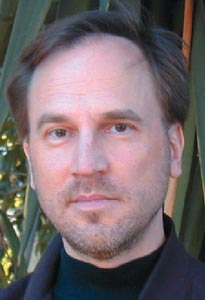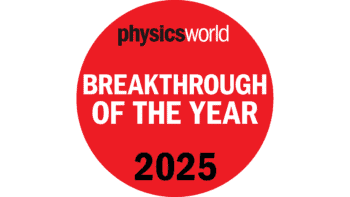Andre Bormanis is a co-producer on Star Trek: Enterprise. He also serves as their science advisor and writes several episodes each season.

What are the three best popular-science books?
It is always daunting to try to pick the “best” in any field of human endeavour that merits thoughtful evaluation and praise. My choices are therefore highly subjective, based on my personal interests as well as the very limited sample of the huge number of titles that exist.
The Cosmic Connection by Carl Sagan. I was 11 years old when I read this book. I was completely mesmerized, and would have read it in one sitting had I not forced myself to put it down halfway through for the sake of giving myself time to fully experience the excitement of all the amazing things I was learning about the universe. Sagan’s prose is engaging, charming, precise and eloquent; his voice is unique, and still captures the imagination of millions. One could make the case that, without Sagan, federal funding for astronomical research in the US might have dried up completely in the 1980s.
The Cosmic Connection was special to me, and played a large part in my decision to study physics and astronomy.
Flatland by Edwin A Abbott. By making the basics of non-Euclidean geometry accessible to me when I was a boy, Abbott helped give me the courage, later in life, to tackle higher mathematics. The invention of “flatland” and its inhabitants was a true stroke of genius. Like all great science teachers, he showed that anyone with patience and proper instruction can eventually comprehend the most challenging ideas in mathematics and physics. If only the authors of textbooks were allowed to be as creative as Abbott and as eloquent as Sagan!
First Light by Richard Preston, which is a true gem. I have never read anything that better captures the personalities of the people who do science than this book. I have searched for comets and near-Earth asteroids using the 18 inch Schmidt telescope on Mount Palomar with some of the researchers Preston profiles, and he conveys the excitement, frustration, fun and thrill of astronomical discovery beautifully. A great structure, great prose and a wonderful meditation on the human longing to grapple with the biggest questions of existence.
What science books are you currently reading?
Lonely Planets by David Grinspoon, which is an extremely enjoyable, lucid and thoughtful book about planetary science and the prospects for life on other worlds. He is one of the best writers to emerge from the ranks of planetary science since Sagan.
What else are you reading?
I have just started Gilead by Marilynne Robinson – an epistolary novel the narrator of which is a dying, 76-year-old preacher from a small town in Iowa. He is writing a letter – essentially a summation of his life – for the benefit of his young son. Robinson’s prose is spare but elegant, and every page resonates with deeply felt emotions and profound humanity. It is a book refreshingly lacking in cynicism or self-absorption.
Which popular-science book have you never read, but feel you ought to have tackled?
I wish I had read The A B C of Relativity by Bertrand Russell. It might have saved me some grief in my electromagnetic-field-theory class 20 years ago!



